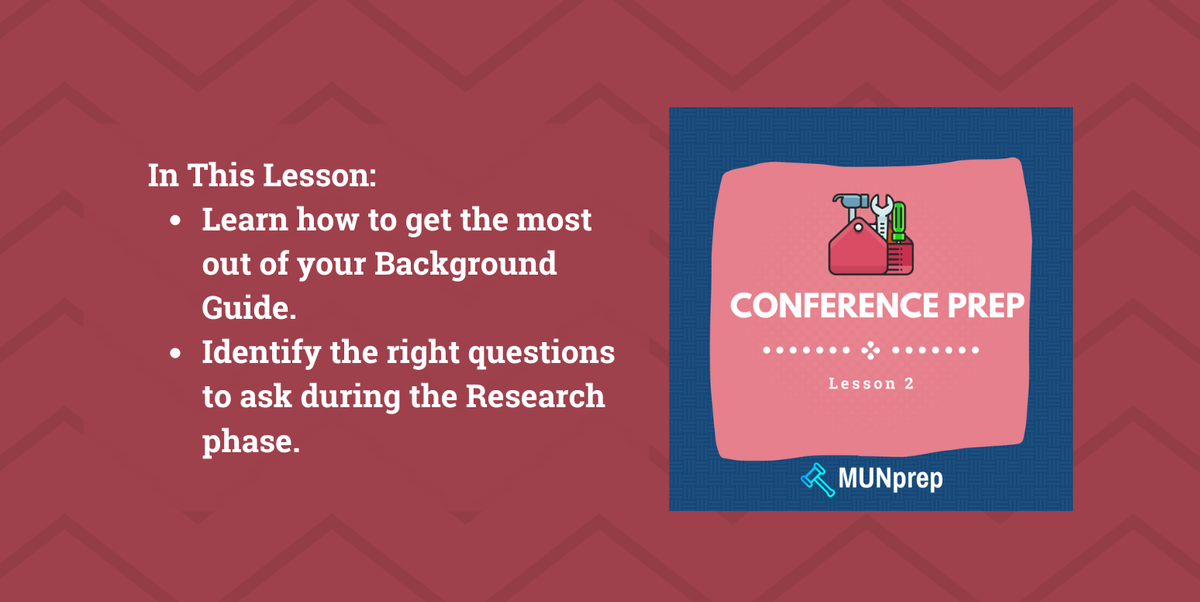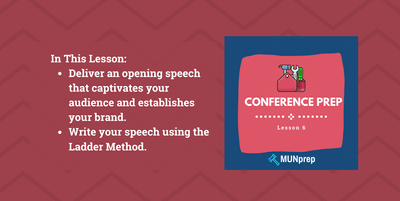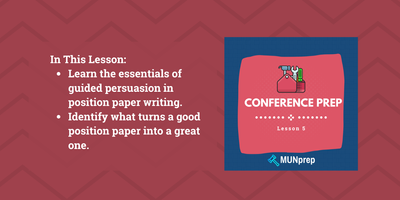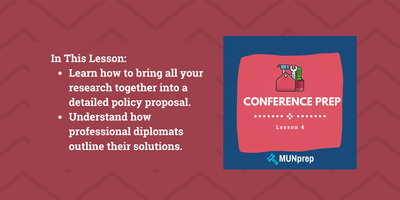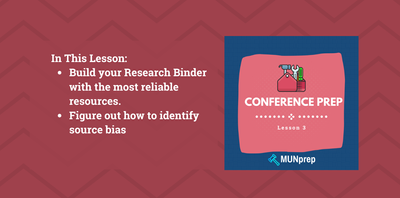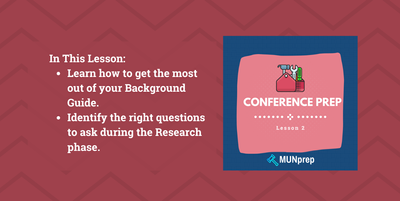MUN Committees - the different styles
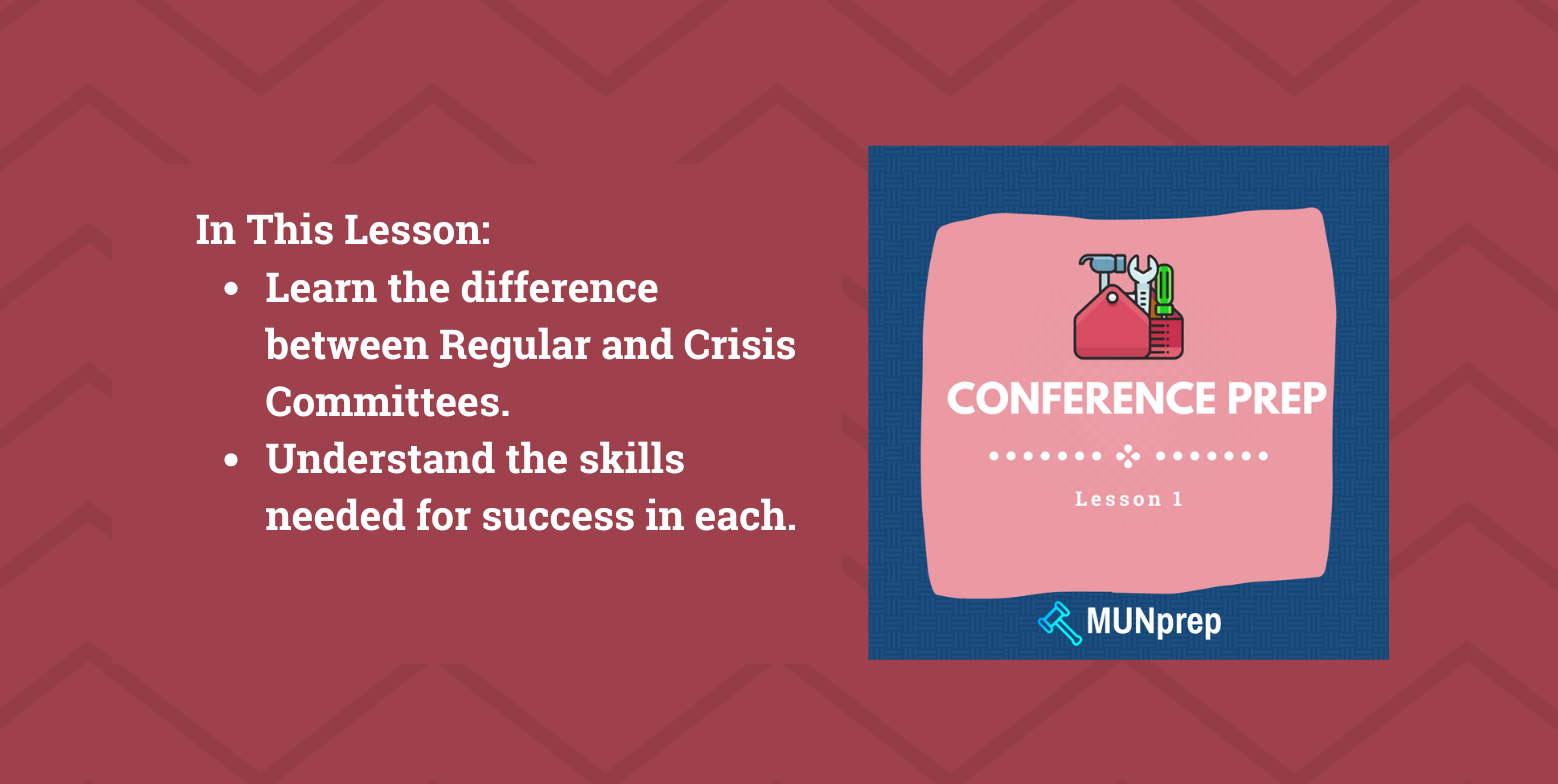
Today, we're looking into the different MUN committee styles that are on offer for Model UN delegates.
We'll break things down into three key types, and outline how each style might benefit different personalities and skills.
MUN Committees
Picking your first MUN committee can be scary - you've signed up for a MUN team met your teammates, and completed Module 1 of the MUNprep Delegates Course.
But now, your teacher hands you a list of committees and asks:
"So, which committee are you interested in?"
It's a mix of excitement and nervousness - you're picking a 2-month commitment and the last thing you want is to end up in a big-room committee when you prefer a smaller sizing.
To help you avoid making some of the common mistakes that every delegate runs in to, we've broken down all of the different committee styles, and what to look for when picking your next MUN committee.
The 3 Committee Styles
At MUNprep, we break committees down into the following 3 categories:
1 – Regular committees/General Assemblies
General Assemblies are a Model UN staple and they replicate what would normally happen in the UN: delegates discuss a problem, they work within their blocs to make a working paper, they vote on a solution. Regular committees focus on teamwork and diplomacy.
Regular committees tend to be larger - there will be anywhere from 50-200 committee members and 5-15 blocs (Unmods guide - anchor link to blocs section). To succeed, you'll need to find your core team early on and build from there.
It's also likely that there will be a resolution merge at some point to secure the votes you need to get your work to pass. This process takes time, so over the course of a conference, delegates will only pass resolutions on 1-2 topics.
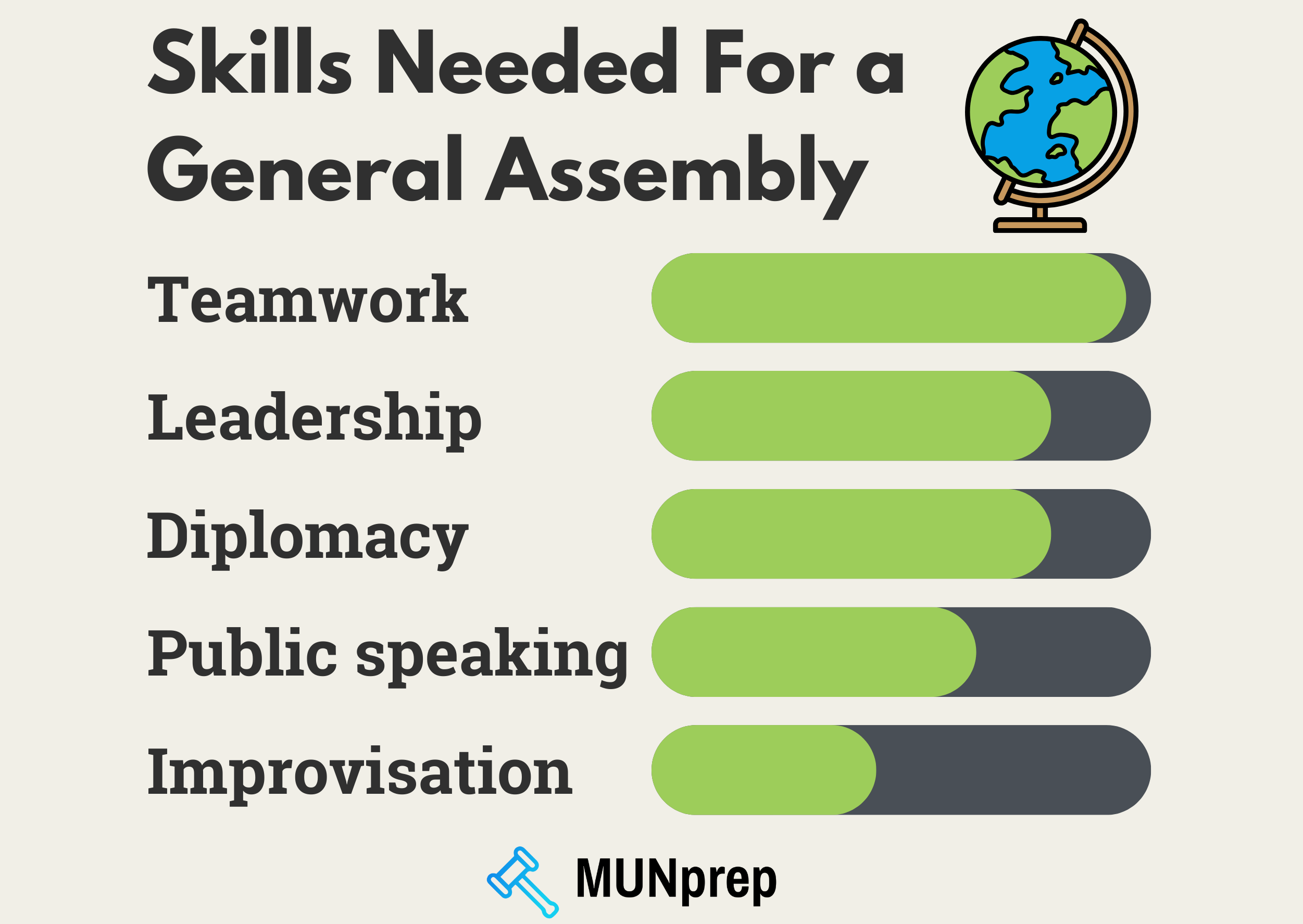
Speeches
If your committee is on the larger side, you won't have many chances to speak - so you'll need to make every speech count.
The most important time spent will be with your blocs during an unmoderated caucus. So make sure you send as many notes as possible and get your team put together early. This means that when you meet you'll be able to make that face-to-face time count.
Double-Delegate
Sometimes, you'll work work with a partner. While this requires a bit more coordination, it can make it easier for delegates to divide work and get more done. Check out our double-delegate guide if you're interested in learning more!
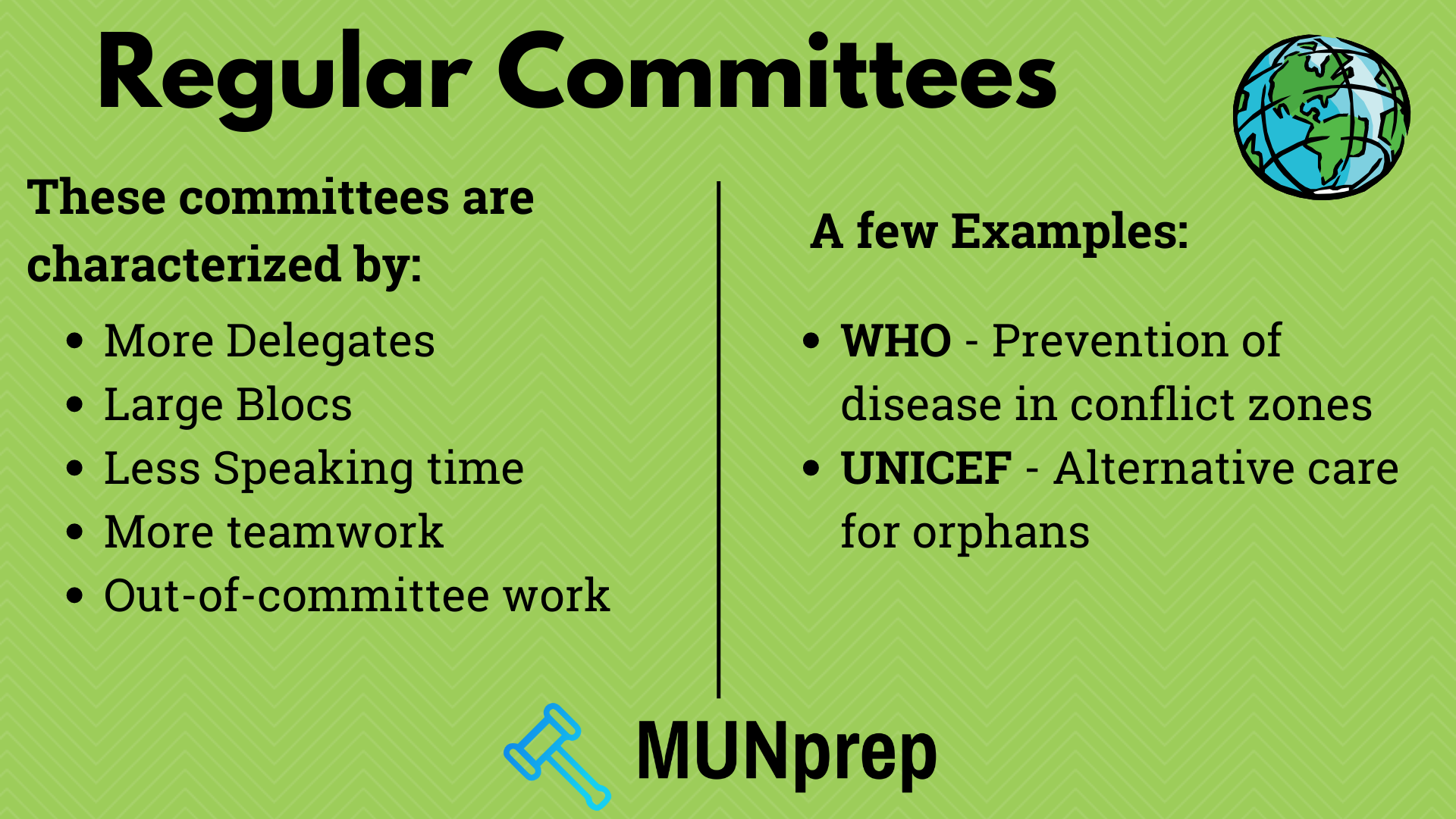
Find out some common MUN General Assembly Topics here!
2 – Crisis Committees
Crisis committees are much more dynamic. In these committees, delegates represent characters instead of countries in Crisis committees and the goal is to make decisions quickly and adjust to a situation that is constantly evolving.
As a delegate, you will have 2 jobs:
- First: Write directives as the crisis develops,
- Second: Draft crisis notes in the background to achieve your own secret objectives.
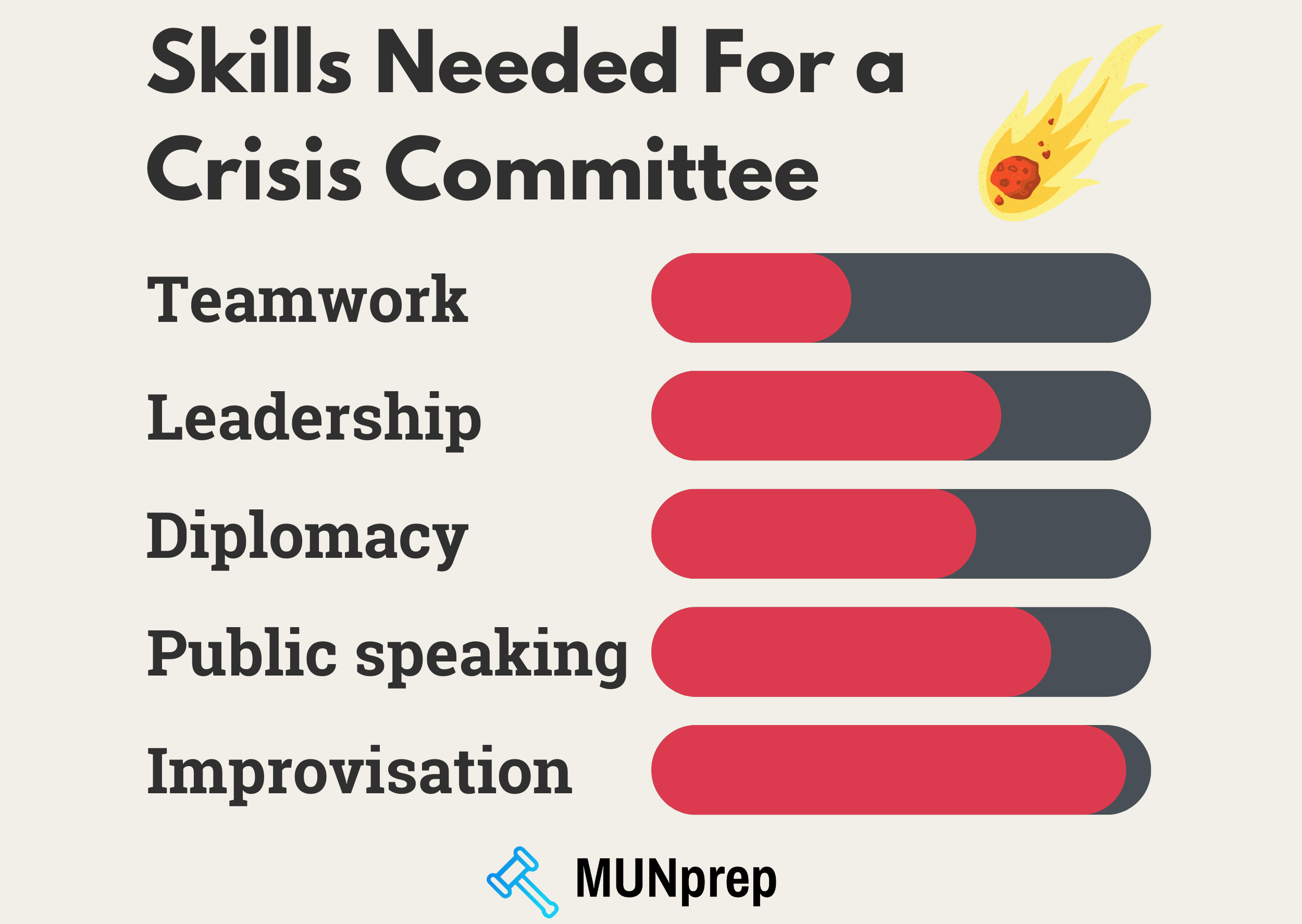
Directives not Resolutions
In Crisis committees, you don’t write Resolutions, you pass Directives. These are much shorter and much more frequent. Over the course of a conference, you might pass as many as 10-15 different sets.
While it can be stressful, it can also be a good thing - it means you're not going to be relying on the same team of delegates for the entire conferences. With every new round of directives to submit, you will find new people and try out new ideas.
Crisis Updates
During debate, you will receive regular crisis updates - these are meant to shake things up and force you to improvise.
A Crisis update might be a cyber attack on critical infrastructure or a natural disaster. It might even be a timed-crisis where you only have 45 minutes to solve the problem.
Interested in learning more? Check out our guide on MUN crisis committees.
Speeches
Crisis committees are generally much smaller, this means that you will end up making many more speeches. But don't worry - techniques like the POP formula will still be just as effective.
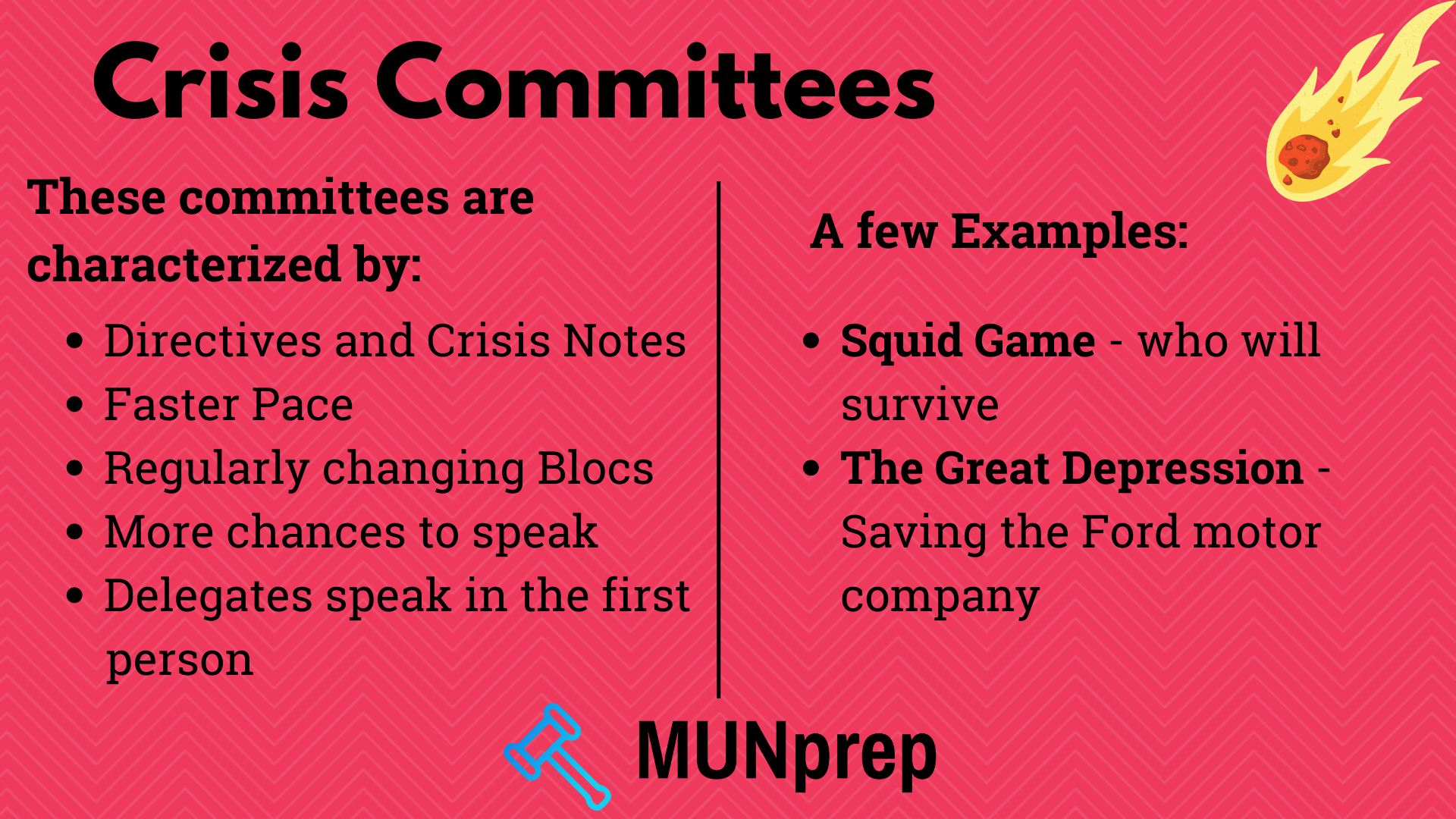
Find out some common MUN Crisis Topics here!
3 – Fusion committees
These are committees that are in-between the Regular and Crisis styles. It can be something like a double-delegate Crisis committee.
You could also have a committee that uses the Resolution crafting format of the Regular style, but with Crisis notes and a back-room dynamic.
Other Fusion committees may not have Crisis notes, but they will have Crisis updates based on resolutions that get passed. There are even committees that will have a back-room for the first day, and the second day as a regular debate. MUN conferences will use all of these styles to keep delegates guessing!
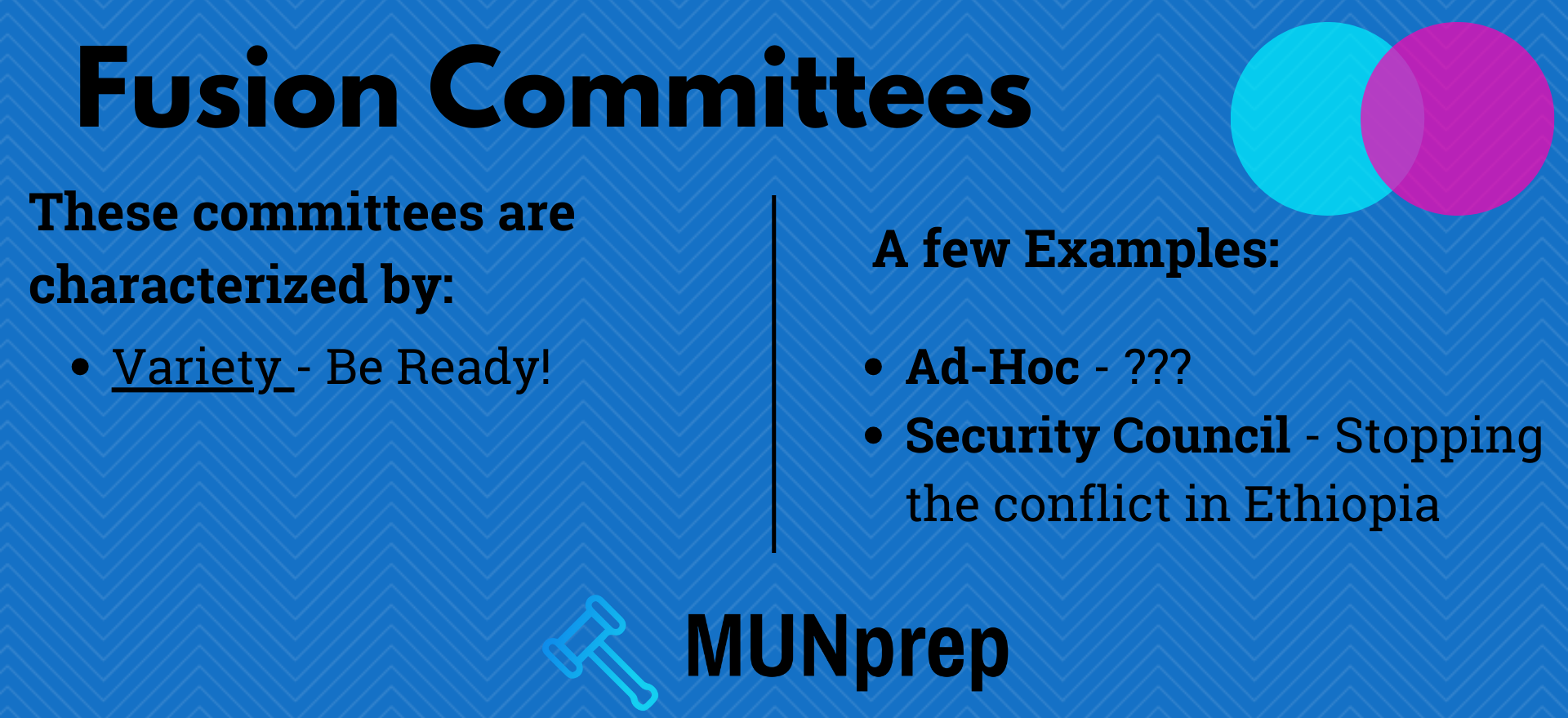
Bringing it all together - Making your Decision
Making the best Committee selection for you is going to come down to your own priorities as a Model UN delegate - Everyone's going to have their own reasons and different skills that they value.
Your own goals could be something like:
Our Advice
In our opinion, here are the factors that are most important for your decision-making process.
1. Your Interest in the Topic
- Regular Committees: These are always going to be linked to current affairs in some way. You'll be able to develop expertise on a certain area and understand how it links to your country.
- Crisis Committees: These can be historical, futuristic or anything in between, if you find a topic that you find exciting - then you should go for it!
2. Preferred Pace and Level of Intensity
- Regular Committees: Tend to follow a steady, methodical pace with structured debate. This can be ideal if you enjoy the conference prep process, and then working with a team at the conference to collaborate on one or two resolutions.
- Crisis Committees: These are anything but methodical, you will have to be okay with adjusting, having things go wrong and keeping on going anyway. If you like a bit of pressure and chaos, a Crisis committee might be a great choice.
3. Size of the Committee
- Large Committees: Offer fewer speaking opportunities, but you'll be speaking to larger audience. So make sure you're okay with that.
- Crisis Committees: While the committee is smaller, you will need to speak more frequently. You will be reliant on your own ideas and work much more than in a Regular Committee.
4. Your Experience Level
- Beginner Delegates might prefer larger committees, like the General Assembly/Regular Committees. Here, you can learn the ropes of MUN, including rules of procedure, formal language, and resolution writing, in a more structured environment.
- Intermediate: Consider specialized committees like the Disarmament and International Security Committee (DISEC) or Economic and Financial Committee (ECOFIN) which involve more complex topics and negotiation.
- Advanced: More advanced delegates might be more likely to challenge themselves with a Crisis committees or smaller specialized bodies where fast-paced decision-making and intense debate are expected.
5. Personal Strengths and Goals
- If you’re looking to strengthen public speaking and persuasive skills, Regular committees provide a platform to develop these by debating in front of a larger audience and practising formal speaking.
- For those who want to improve their problem-solving abilities and quick decision-making, Crisis committees allow you to tackle unexpected challenges and devise strategic solutions on the fly.
- If you’re interested in trying a bit of both, Fusion Committees offer a balanced experience that can help you become more versatile and adaptable as a delegate.

Some Final Reminders
Not all conferences will label their committees same way, so its important to remember a few things:
- Committees in MUN are not always labelled according to their position in the UN structure - For example, the WHO can be categorized as a GA, and the Security Council can be labelled as a specialized agency or Crisis committee.
- Check the conference website to know what style of committee you’re in for - It’s not always possible to know your style of committee by looking at the topics. Fortunately, conference sites will generally label conferences under certain genres to make it easy for delegates to understand what they’re in for. If a committee is labelled as a General Assembly or ECOSOC, it will normally be a Regular style committee.
- Specialized Agencies can be a mix - For Specialized agencies, look at the topic that’s outlined. If the committee is a UN body, then you will probably have a regular style committee, if not, it will likely be Crisis. But just to be sure, feel free to reach out to a committee chair and ask them if you will be passing Resolutions or Directives.
Next Lesson
Now that you're up to speed on the different committee styles, it's time to actually get into the conference prep process.
When talking about conference prep, there's no better place to get started than with the background guide! In the next lesson, we'll show you everything you need to know about reading and annotating your background guide to save time and come up with the best possible solutions.
See you there!
